Visual Communication on a Tight Budget
Images are the soul of every organisation. Whether photos or video: we use visuals to show who we are and what is important to us. They demonstrate our identity, telling the stories that inspire the public’s interest, purchase or donation in our work. Many of us know that the majority of human communication occurs not through words, but through visual cues. So why do so many communication, marketing and fundraising managers struggle to find budget for photography and video production, and why do we need to solve this?
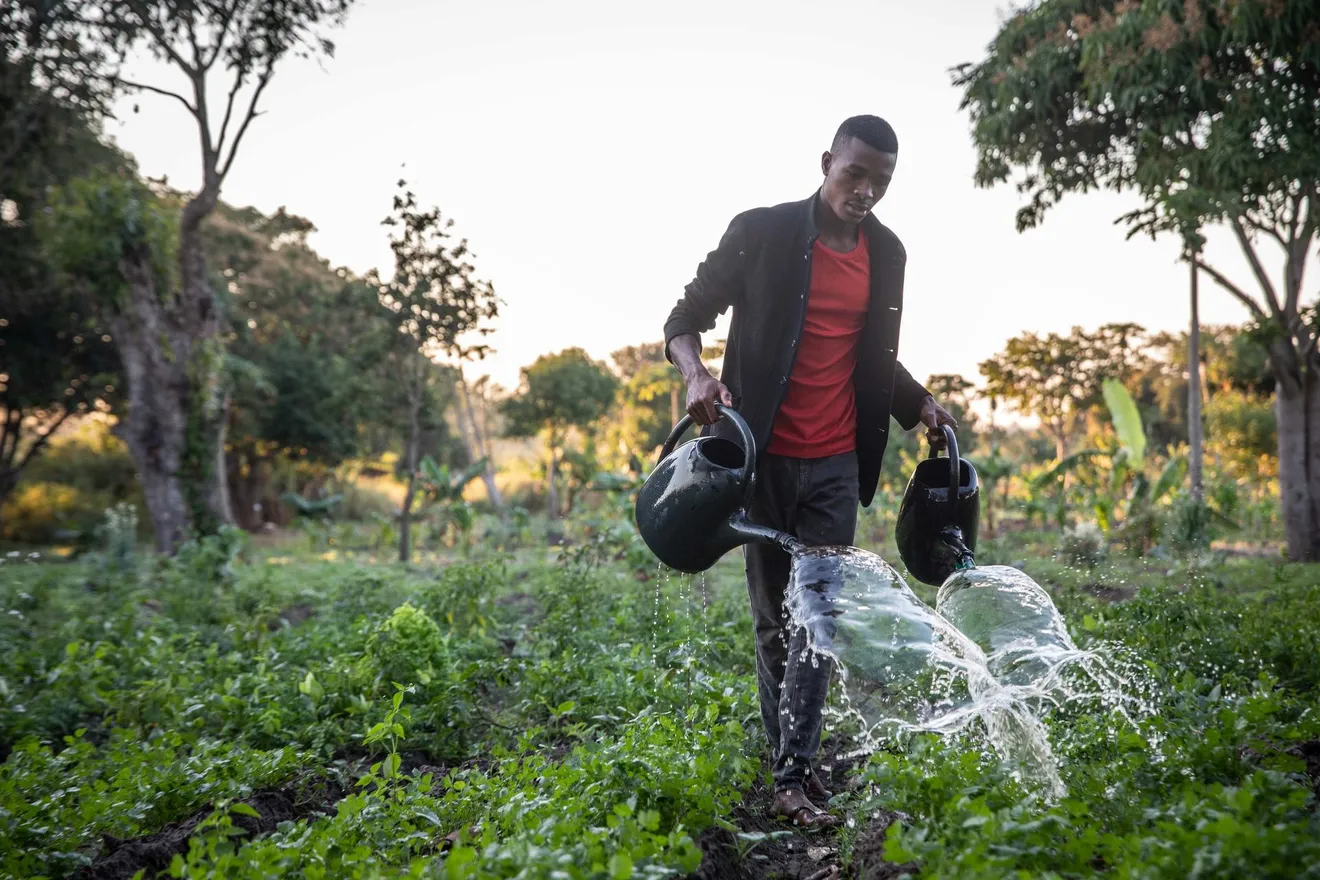
We wonder what Jaime, a farmer in Mozambique who was taught by his father, would say about the differences between farming and communication. Both have regular seasonality, require ongoing planning and maintence and are greatly impacted by unexpected events.
Photo: Maputo, Mozambique – Mauro Vombe / TdH / Fairpicture
What’s the core problem?
There are two sentences we’ve heard over and over again:
"It is very time-consuming and expensive to get pictures that I can really use for my work."
Followed by:
"We only have a small budget for photo and video production."
Do you see how these statements contradict each other?
Our theory is that this occurs because image editing and procurement comes low on the list of priorities in the budget discussions. This means negotiations are done ad hoc throughout the year on already tight budgets and the time for these projects is often done at the expense of overtime. So how do we solve this? Image production and procurement must be included as the budget is defined.
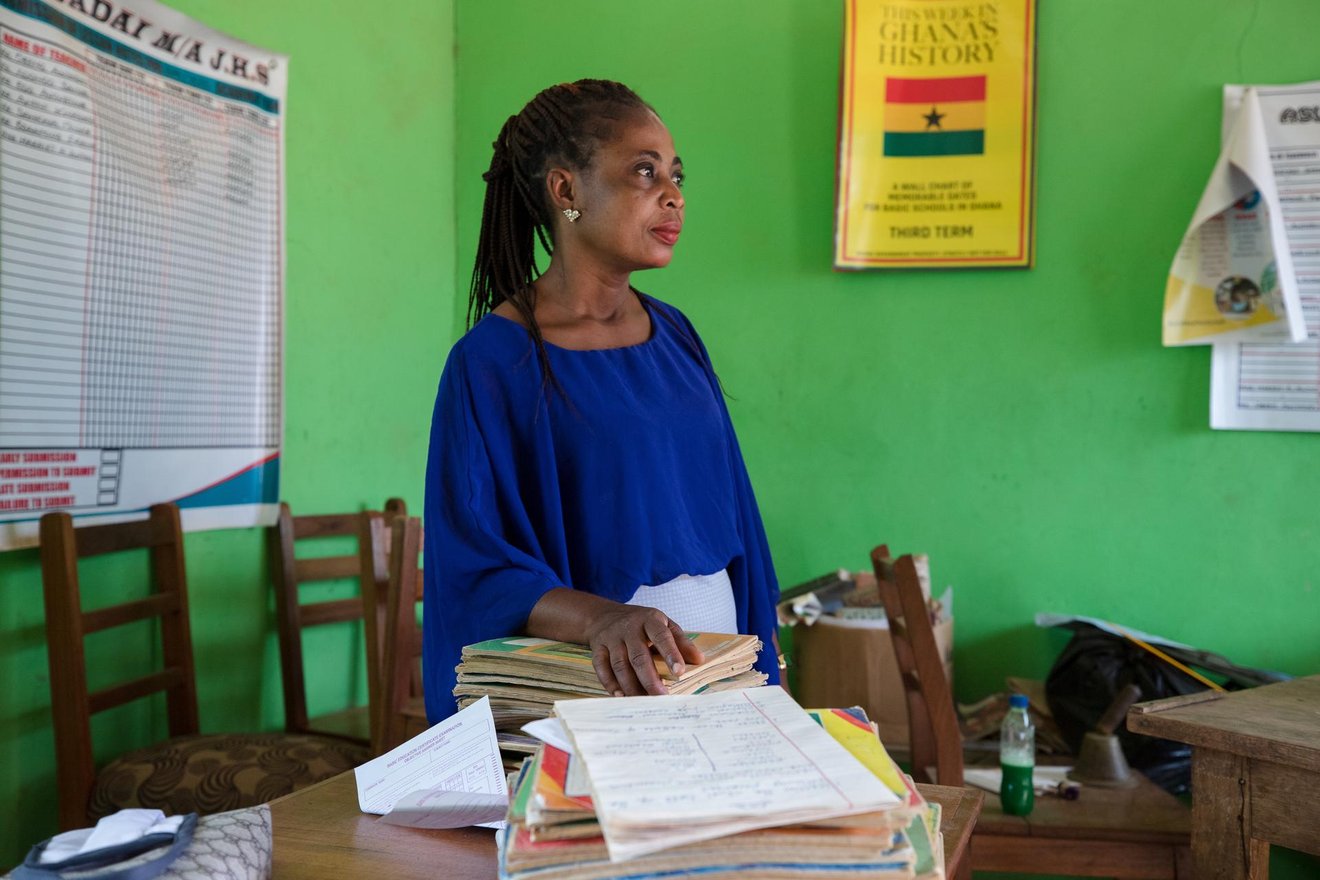
Planning around unexpected global events also became a regular part of life for Leticia Kwaw, Headteacher of Asuadai MA School. Supported by the Asuadai Farmers' Cooperative, Kwaw was preparing to re-open the school after a ten-month closure due to the COVID-19 pandemic.
Photo: Asuadai, Ghana 2022 – Francis Kokoroko / Fairtrade Finland / Fairpicture

FairTalk #14: Reclaiming Ethical Fundraising in a Time of Nonprofit Cuts is happening on 10th June 2025, at 5pm CET.
This is part of our ongoing series exploring the role of ethics in visual storytelling and communication across the nonprofit and development sector.
Join us live to explore how NGOs can respond to today’s funding pressures without compromising their values.
Managing dynamic demands in a creative office
We’re not going to tell you that you can perfectly plan your annual photo and video budget because we don't believe that to be true or possible.
In communications, everything can change at short notice. You may need assets for a report that is being prepared for a financier, there may be a last-minute event that you need to share with your community - or you may need to scrap and project and start over due to a natural disaster. For all of these reasons, it is important to keep your budget flexible and versatile.
Have an estimate of what is needed for daily operations: seasonal and annual campaigns, annual reports, and social media. This forms a global budget that can be divided and allocated according to individual - and unexpected - needs.
Optimise Pre- and Post-Production Costs
Finding a creative partner that decreases your internal workflows will help you better manage your budget. Coordinating productions, brief reviews, data management and payment: these details all cost time, which effectively means money for your organisation.
By working with a partner like Fairpicture who has clearly structured processes that exist in one digital ecosystem, the administrative work will decrease. Additionally, international travel expenses are also reduced, as you will be working with local talent.

Photo: Santa Marta, Colombia 2022 - Lorena Velasco / Fairtrade International / Fairpicture
Smarter budgeting through partnerships
You can save direct costs and build a more efficient working relationship by entering a long-term partnership. Every organisation has its own context, and having a consistent partner who understands your needs—locally or globally—can make a big difference. Fairpicture offers framework and long-term agreements that significantly reduce your overall costs. If you're curious about setting something up, our account management team would be happy to talk.
Fairpicture offers long-term partnerships that reduce costs and support your mission more efficiently.
Jörg Arnold, Co-Founder Fairpicture
What is important when budgeting for photo jobs?
Always remember: good images and videos require time. Time to prepare the production, time to for the visual creator to gain the trust and proper consent of those depicted, time to edit the metadata. Even with a tight budget, investing an extra day or two will help ensure that the visual creator you work with can do their job properly and professionally. When professionals are asked to rush something, the quality of our work decreases. Budgeting for sufficient time will help everyone involved in your productions to give their best - which is important if we consider images to be one of the most important things in our communication strategies.
More from our blog
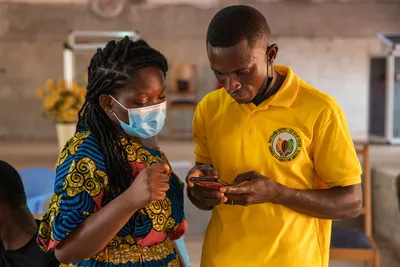
March 2024 - Aurel Vogel
Informed consent: Why an app is better than paper forms
Collecting informed consent for photo and video productions is faster and more secure when using a mobile app instead of paper forms.
Learn more about Informed consent: Why an app is better than paper forms
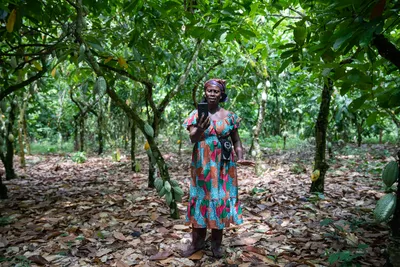
May 2024 - N'Deane Helajzen
The Power of Community Storytelling and Co-Creation
Explore the importance of community storytelling and its relationship with co-creation, illustrating how they can enrich collective narratives.
Learn more about The Power of Community Storytelling and Co-Creation
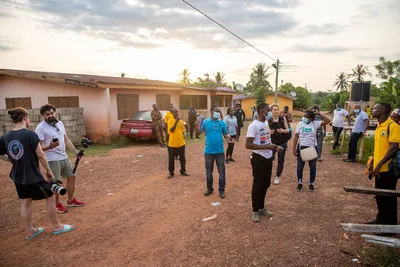
July 2022 - Daniel Caspari
Why you should always work with local visual creators
Or how I met Fairpicture, learned new perspectives and now can’t wait to repeat the experience I made with this illuminating zebra.
Learn more about Why you should always work with local visual creators
 by
Jörg Arnold, April 2025
by
Jörg Arnold, April 2025